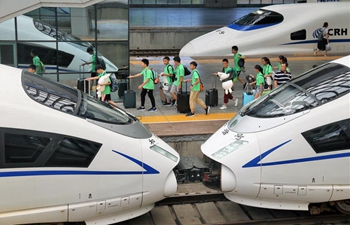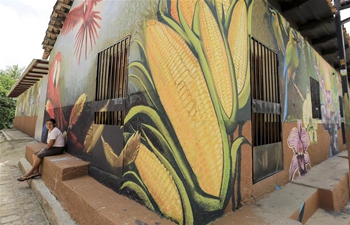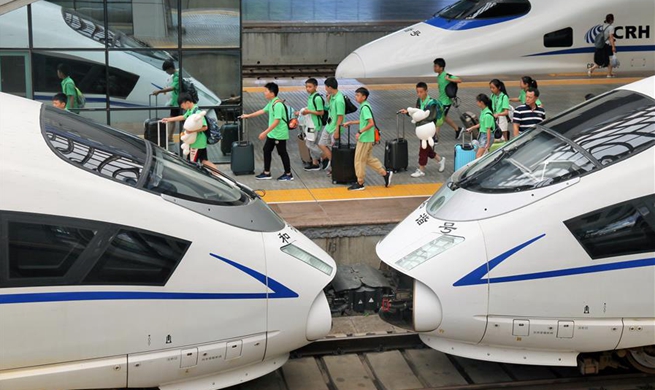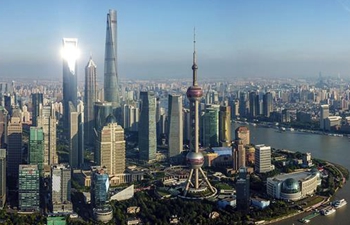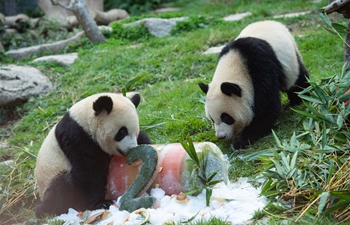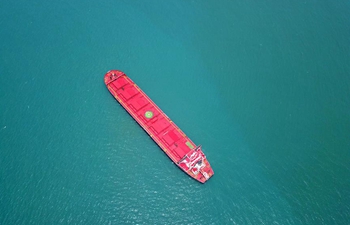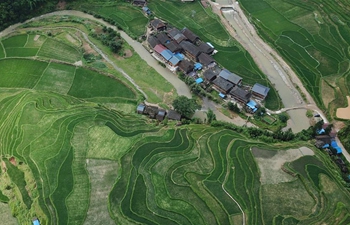ISTANBUL, June 30 (Xinhua) -- The Turkish government is under pressure to adopt immediate policies to increase production in agriculture after skyrocketing prices of basic foods, including onion and potato, experts said.
Problems of agriculture have recently been placed high on the country's agenda, after the prices of onion and potato rapidly soared, triggering public debate.
Turks over the last month bought 1 kg of onions at a price of 6.5 Turkish lire (1.5 U.S. dollars), up from 1.3 lire last month. The figure was indicating a 212 percent increase.
The situation was not any different in the potato price, which sharply soared by 94 percent.
Turkey imported 4,000 tons of potatoes, corresponding to 1 percent of its total need, from Syria in a move to curb rising prices, a government minister announced on Wednesday.
"We have allowed potato imports from some parts of Syria. As a result, the prices declined to around 2 lire," said Economy Minister Nihat Zeybekci.
Commenting on the latest import, Turkey's Food, Agriculture and Livestock Minister Ahmet Esref Fakibaba said "dark hands" are behind the dramatic rise in prices.
"We have taken our precautions. You will see that the prices will come down again for potato, onion, chickpea and other products," he noted.
Ali Ekber Yildirim, a columnist with online news portal dunya.com, tweeted that it is embarrassing for Turkey to consider reducing potato prices through import from war-torn Syria.
Turkey produces about 5 million tons of potatoes per year and two months ago there were 400,000 tons in its stores, he added.
In his recent article, Yildirim said high input costs and the decline in productions are among the major reasons for sinking agriculture in the country.
He argued that the implementation of product-oriented and farmer-oriented policies will be of great importance under these circumstances.
"Otherwise, we will have to import many products from potatoes to onion, from straw to bran," the Turkish columnist said.
Speaking to Bloomberg TV, Bulent Gulcubuk, an academician of faculty of agriculture from Ankara University, noted that the rapid increase in input prices in recent years pushed farmers to shun production as there has been an increase of 29 to 34 percent in feed prices, diesel oil and fertilizers this year.
"In such cases, producers can give up production because their real income decreases while their costs increase," he said.
In his view, the inverse relationship between input prices and real income of farmers also limits the growth in agriculture.
Turkey's economy grew 7.4 percent in the first quarter, but its agricultural growth stood at 4.6 percent.
"Product prices do not increase in the same way, causing the growth rate in agriculture to stand at a limited level," Gulcubuk added.
Besides, the price fluctuations in other vegetables and fruits were not pleasant either.
The price of tomatoes ranges from 4 to 7 lire for 1 kg, while green bean is priced at as high as 7.5 lire, and green pepper's price has recently hiked to 8 to 9 lire.
"The increase in prices is unbelievable," Ayse Yildiz, a 52-year-old housewife, said at a local market in central Istanbul.
"Every time I come here, I spend more but buy less," she told Xinhua.







